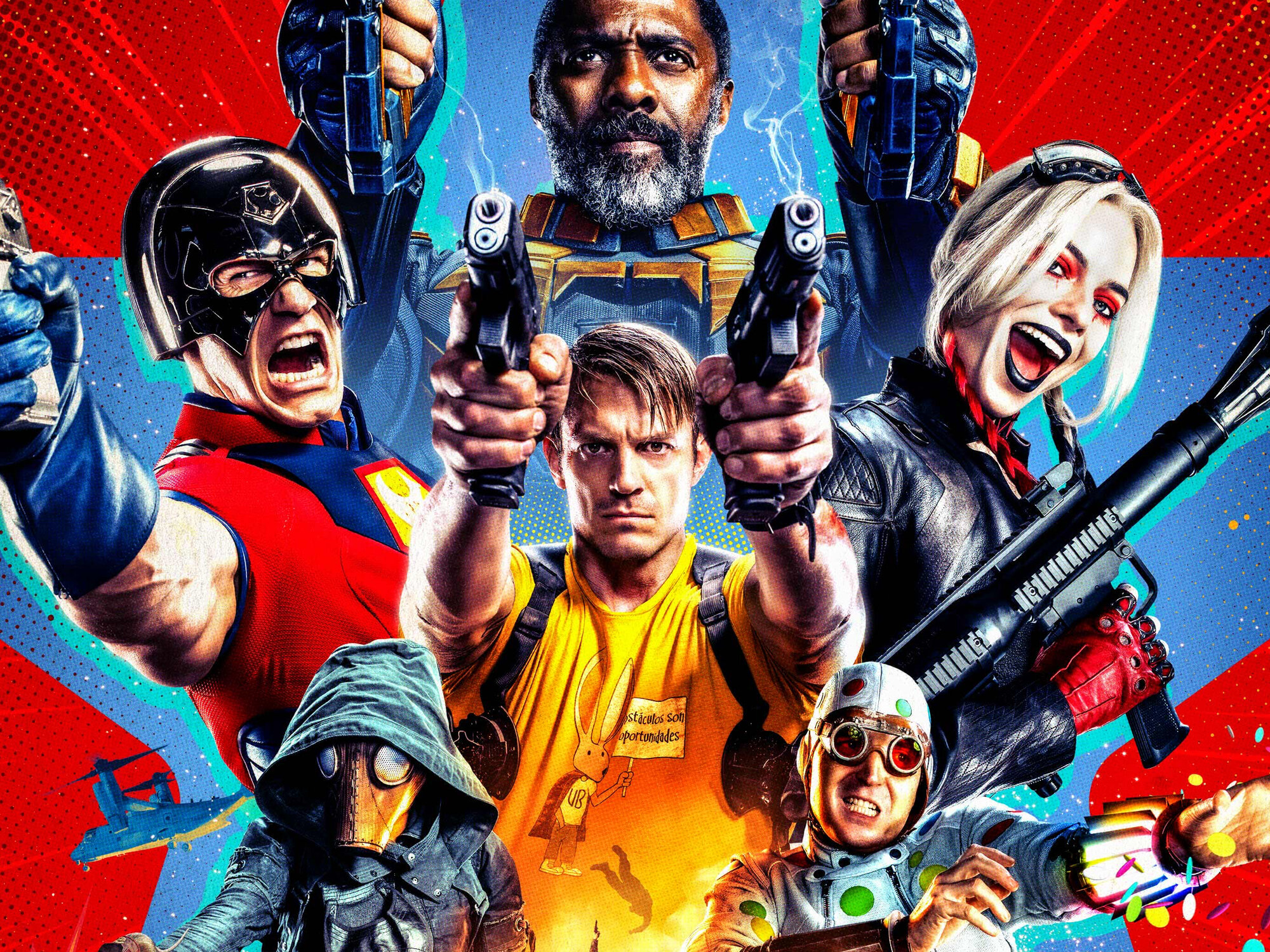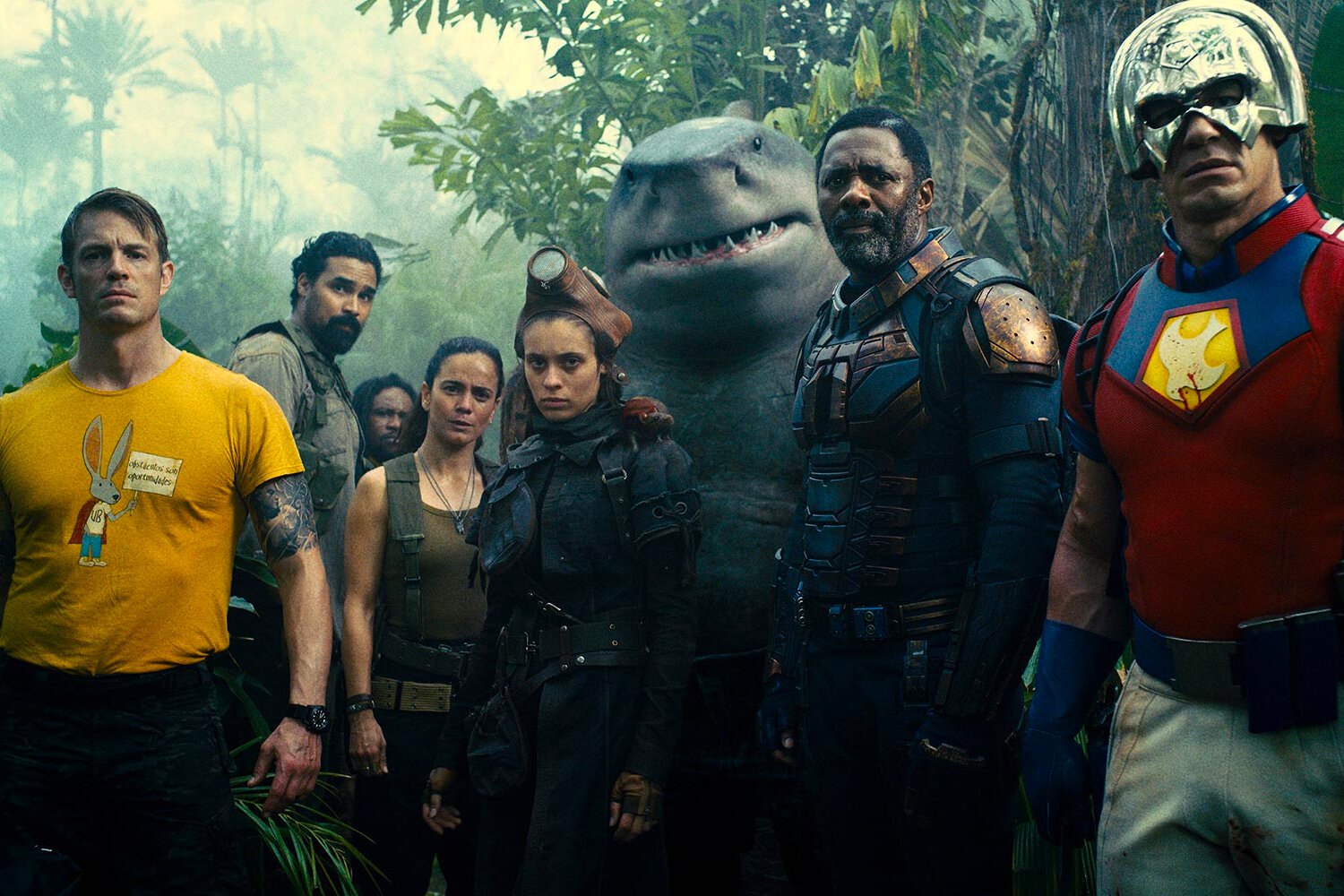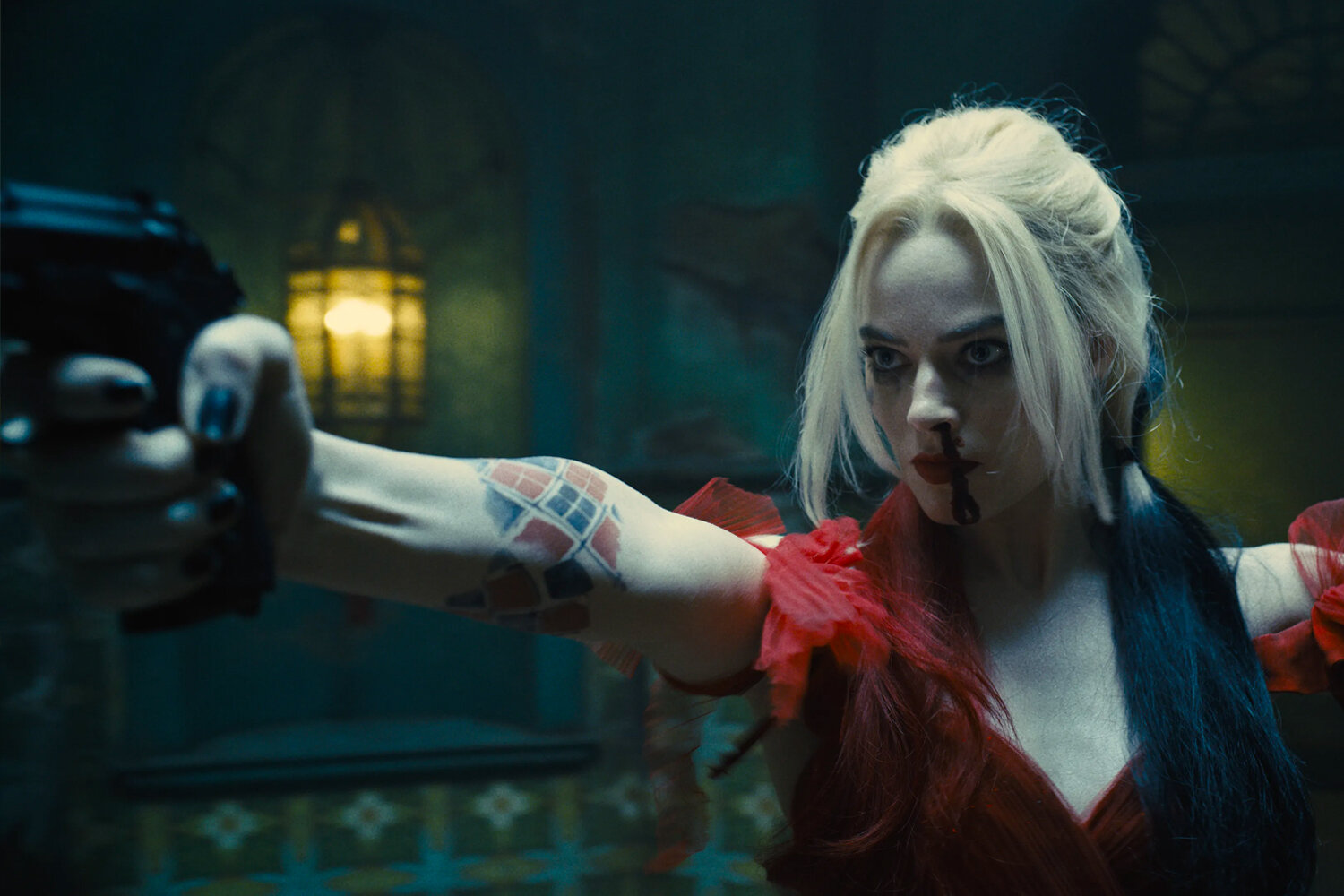Film Review: The Suicide Squad
blood flows and hearts beat in James Gunn’s The Suicide Squad
The Suicide Squad is comics legend John Ostrander personified through James Gunn’s brazen sensibilities. Surprising heart wrapped in ultra-violence, it’s the Task Force X I’ve always wanted to see, and it mines incredible fun from being brutally unkind to its “heroes.” Jettisoning the turgid continuity of its 2016 predecessor, The Suicide Squad dispenses with edgelord theatrics and gets straight to the dangerous fun. Minor spoilers ahead…
For many comic book fans, the first association when they hear “Suicide Squad” isn’t the DC Extended Universe, David Ayer, or his limp 2016 adaptation, but legendary scribe John Ostrander’s seminal run in the late 1980s. Recontextualizing DC Comics’ larger-than-life mythos through the eyes of D-list thugs and villains, Ostrander made us care about forgotten characters before pitting them against insurmountable odds, only to tear through them like wet tissue. Equal parts conspiracy thriller and cape story, Suicide Squad’s bloody 74-issue run perfected its anyone-can-die stakes and cemented its special place in comics canon.
Flash forward to 2021, and John Ostrander’s source material has seemingly found its matrimonial match in filmmaker James Gunn. Hewing closely to its comic book roots and mostly discarding any baggage from its much-maligned 2016 predecessor, The Suicide Squad centers around a rotating squad of incarcerated villains, sent on a dangerous mission in exchange for reduced sentences. It’s a story perfectly suited for Gunn’s bombastic sensibilities: More Troma film than Guardians of the Galaxy, The Suicide Squad marries Ostrander’s Task Force X with Gunn’s signature humor, heart, and ultra-violent grotesqueries. In the end, you might find yourself caring more for the obscure fodder of Bloodsport, Ratcatcher II, and Polka Dot Man more than you ever did for Batman and Superman in their own movie.
“More Troma film than Guardians of the Galaxy, The Suicide Squad marries Ostrander’s Task Force X with Gunn’s signature humor, heart, and ultra-violent grotesqueries.”
The Suicide Squad keeps the most essential elements of its 2016 counterpart, but jettisons the rest. The team is still led by Amanda “The Wall” Waller (Viola Davis, much more threatening and ruthless than before) and commanded in the field by Colonel Rick Flag (Joel Kinnaman), but even with repeat appearances by Harley Quinn (Margot Robbie, slipping on a pair of comfortable jester shoes) and Captain Boomerang (Jai Courtney), knowledge of their prior exploits is hardly necessary. Taking influence from the pages of Ostrander’s “Baptism of Fire,” The Suicide Squad sends its group of ne’er-do-wells to infiltrate the Nazi-era fortress Jotunheim in Corto Maltese, which houses the mysterious Project Starfish. Their mission? Dispatch anyone in their way and destroy all traces of the experiment.
The film’s marketing tagline appropriately outlines its stakes: “They’re dying to save the world.” Gunn treats the slogan as The Suicide Squad’s ethos, delivering the most suspense and tension found in a superhero movie…perhaps ever? By leaning into its D-list roster, Gunn chews through his sprawling cast with sadistic glee. Characters such as Mongal (Mayling Ng), Weasel (Sean Gunn), Javelin (Flula Borg), Savant (Michael Rooker), and TDK (Nathan Fillion) all get their chance to shine, but The Suicide Squad is wholly unafraid to fillet, roast, and shred its “heroes.” Coupled with Amanda Waller itchy trigger finger when it comes to her prisoners’ implanted explosives, the film enters a whole new realm of “take no prisoners” when it comes to superhero fare.
“But James Gunn also knows that behind every tidal wave of blood is a beating heart; character deaths mean nothing if you don’t care about them.”
But James Gunn also knows that behind every tidal wave of blood is a beating heart; character deaths mean nothing if you don’t care about them. The Suicide Squad is adept at balancing its action, humor, and emotional beats, even if it takes a bit of first-act finagling to achieve that equilibrium. The character work amidst the chaos is nothing if not effective - you would have to be made of stone if you can’t find heft in the bond between the rat-phobic Bloodsport (Idris Elba) and Ratcatcher II (Daniela Melchior), the already meme-worthy naivety of King Shark, or the neurotic skittishness of Polka Dot Man (David Dastmalchian). John Cena’s silly but hardened Peacemaker makes for a formidable foil, and the squad’s most fleshed-out player - Harley Quinn (Margot Robbie) - gets a chance to build off her growth from Cathy Yan’s Birds of Prey.
Even when The Suicide Squad is derivative, it feels fresh. Like many comic book movies, Gunn’s magnum opus ends on CGI spectacle - large scale destruction, explosions, and things falling from the sky. But by injecting his own brand of horror-adjacent sensibilities and tongue-in-cheek humor, it doesn’t feel nearly as tired as its caped peers. Perhaps I’m overestimating its final act’s prowess, but the comics fan inside was giddy with excitement seeing the cosmic threat of Starro the Conqueror splashed across my IMAX screen in Kaiju form.
The messy DCEU’s laissez-faire approach to franchise-building often results in wild inconsistency. Its low floor and high ceiling is markedly different from the steady output from across the aisle at Marvel, but it’s also able to swing bigger and hit harder. When the biggest movies in the world are superhero movies every year for the last decade, making the genre feel fresh is no small feat. By seamlessly combining the true essence of its comic book roots with James Gunn’s uniquely graphic vision, The Suicide Squad is a rousing home run. Get ready to root for the bad guys.













